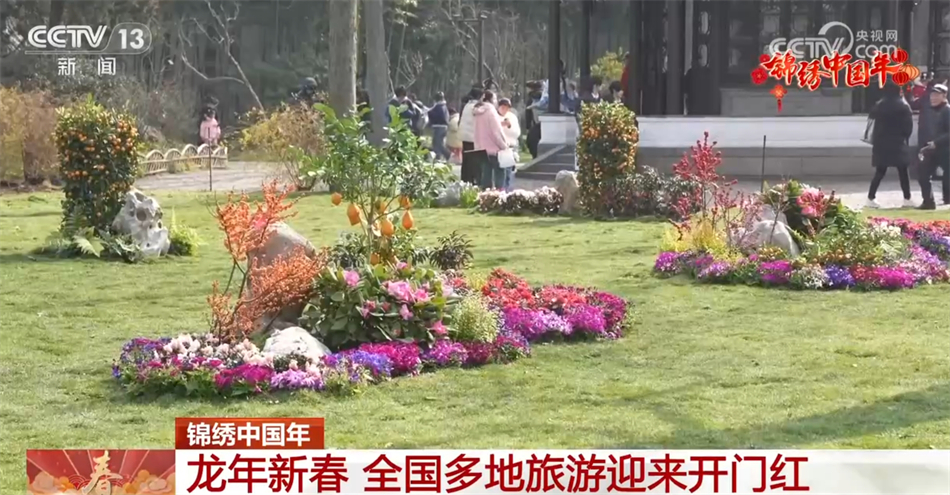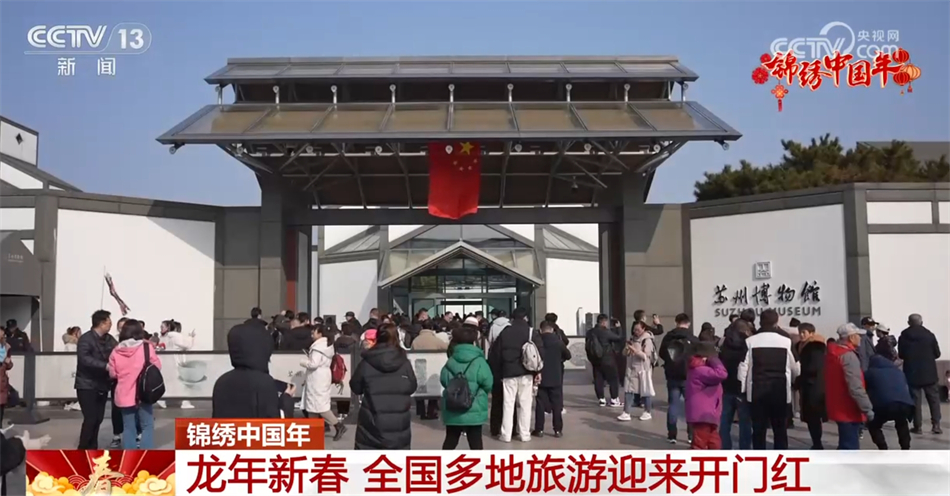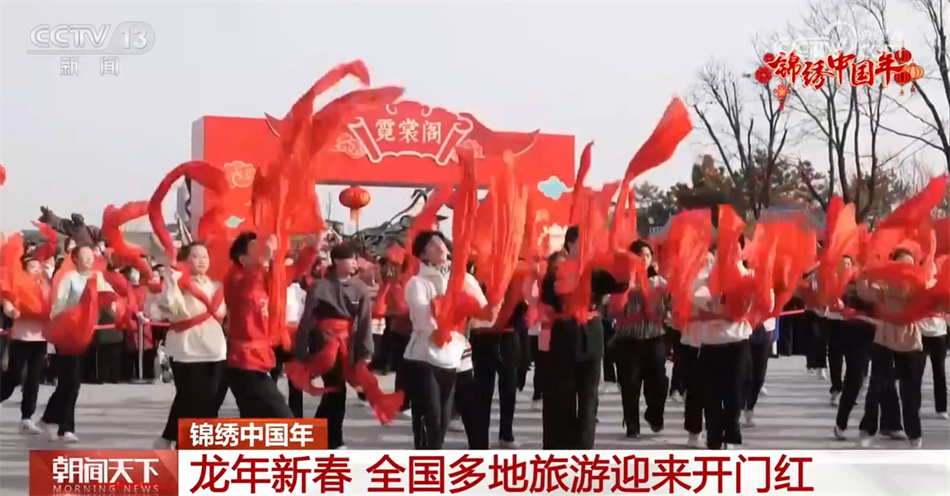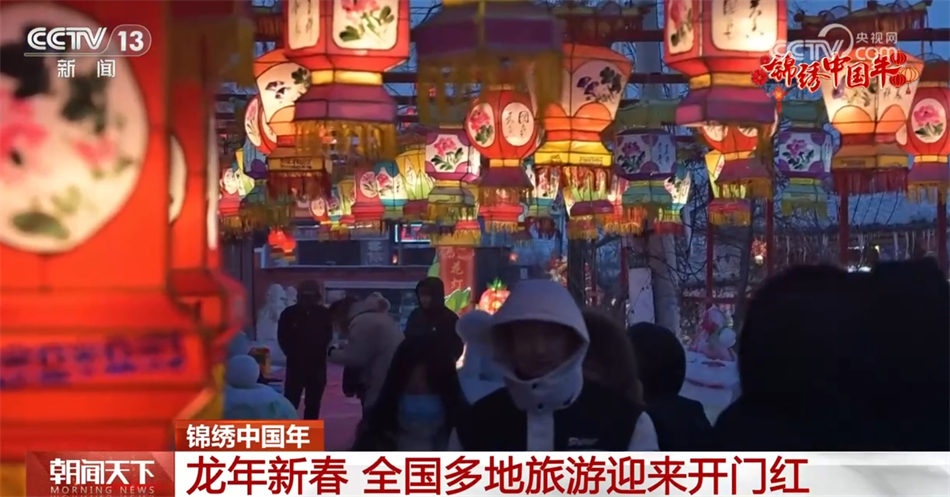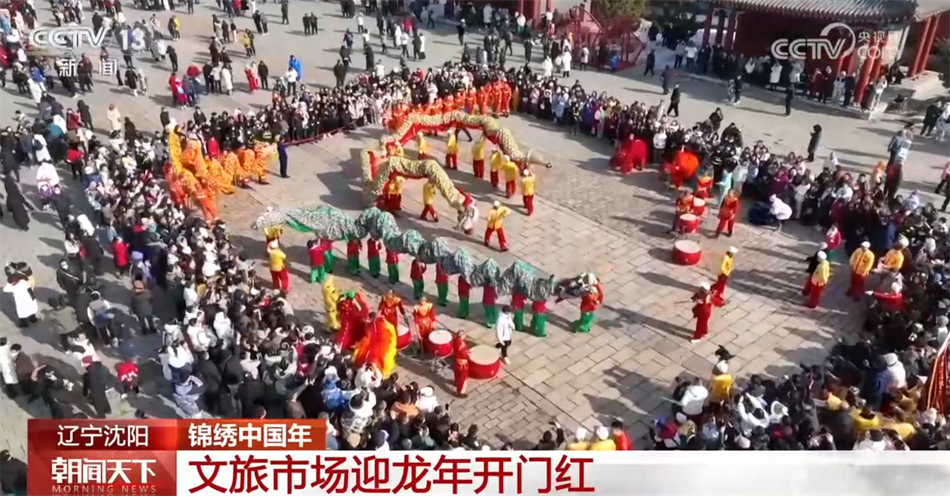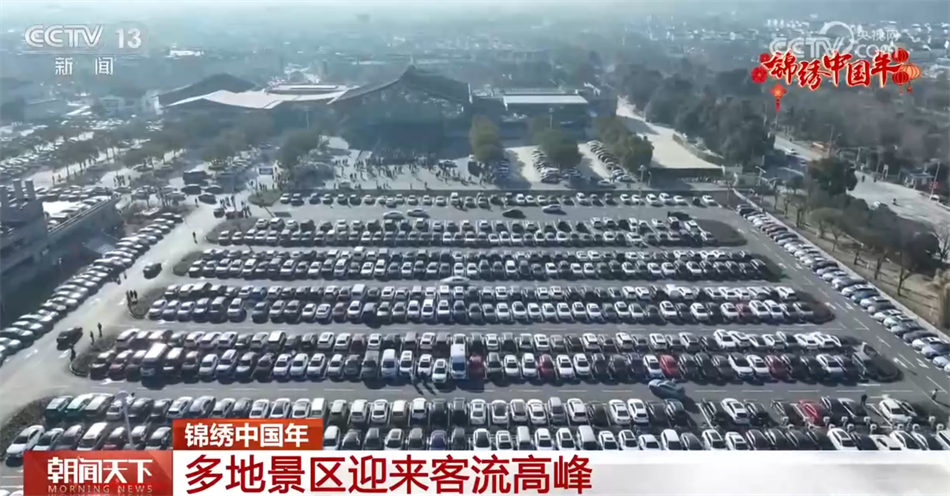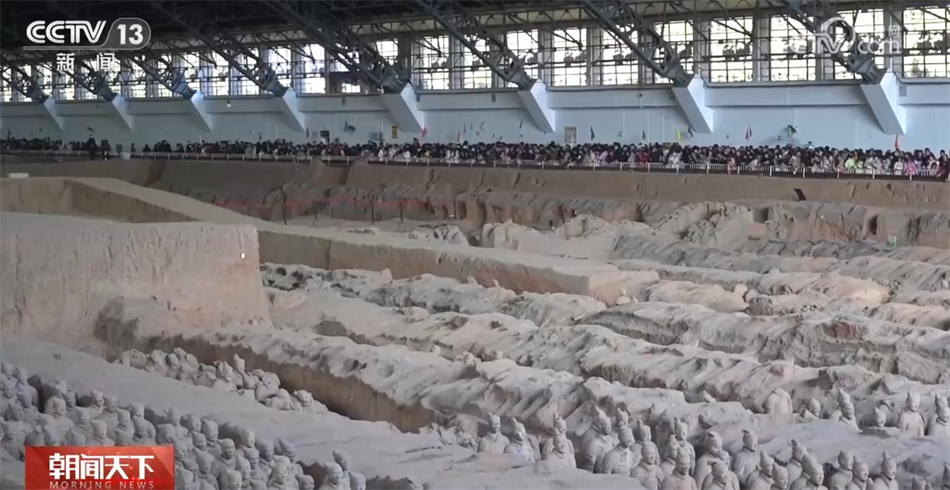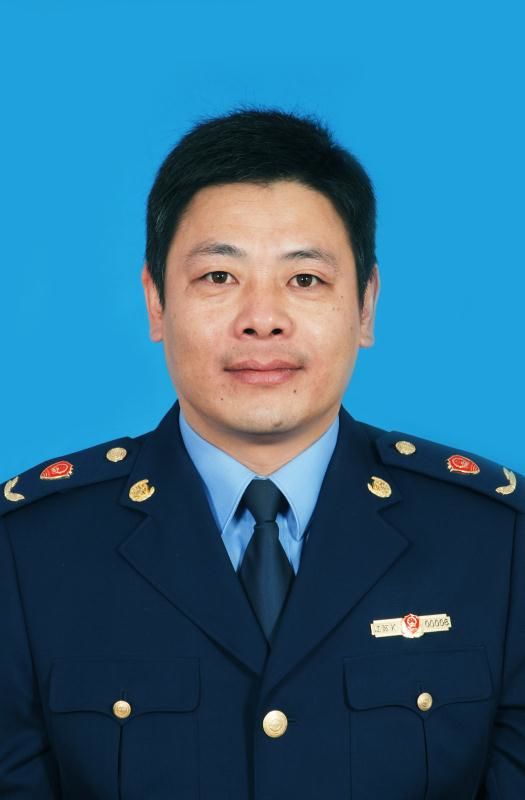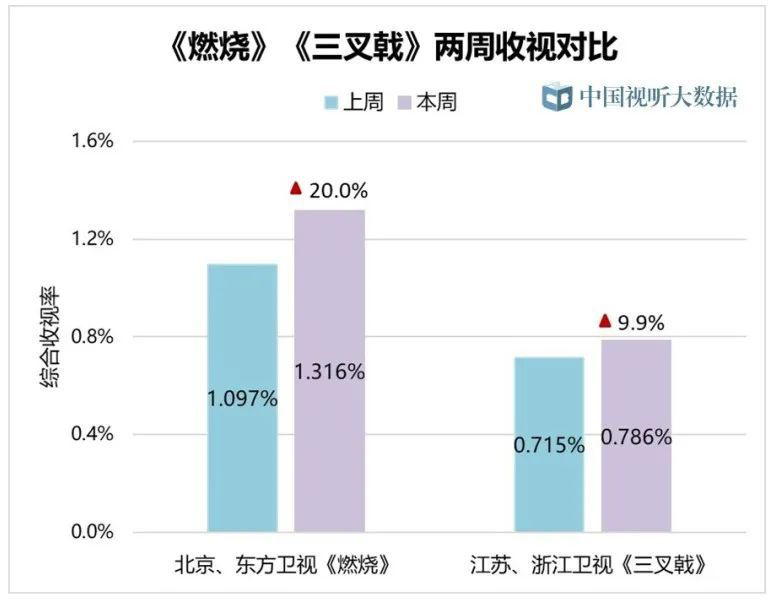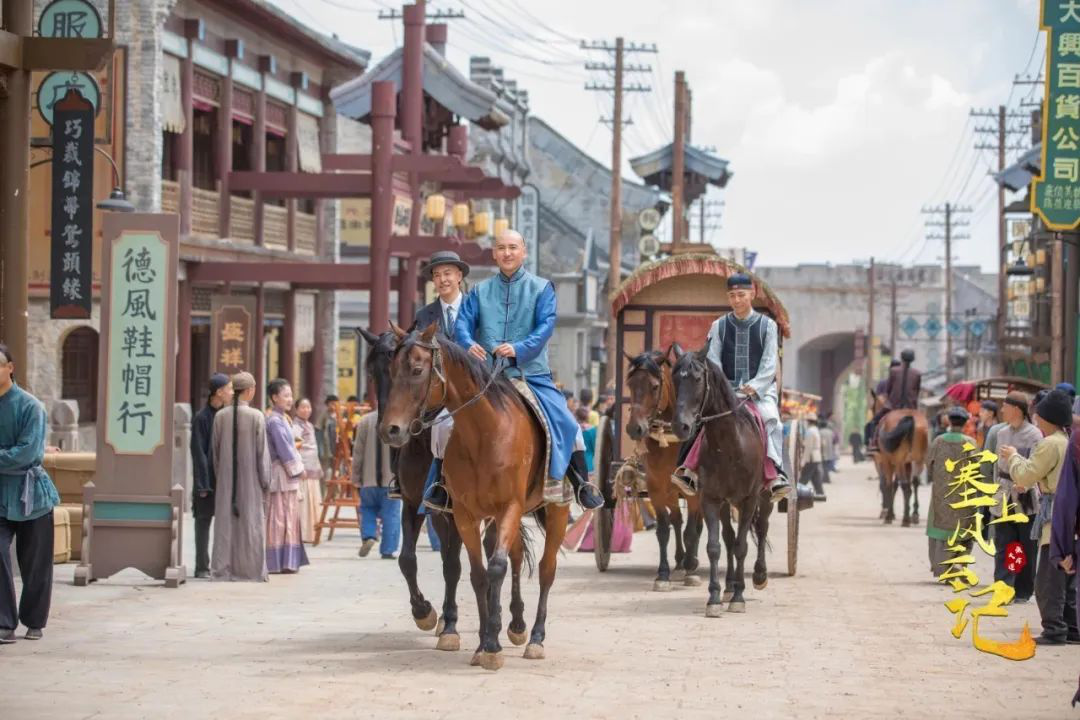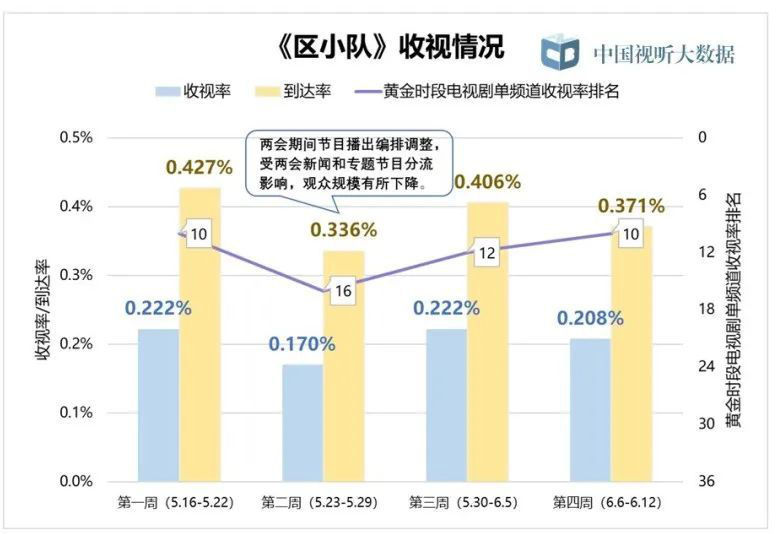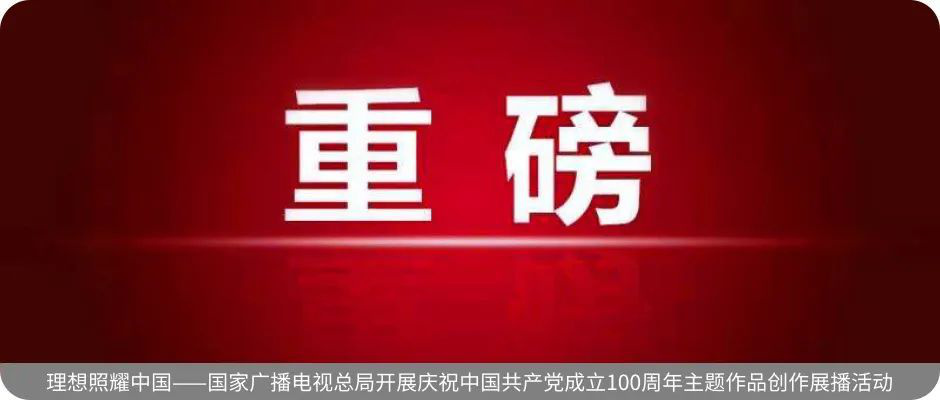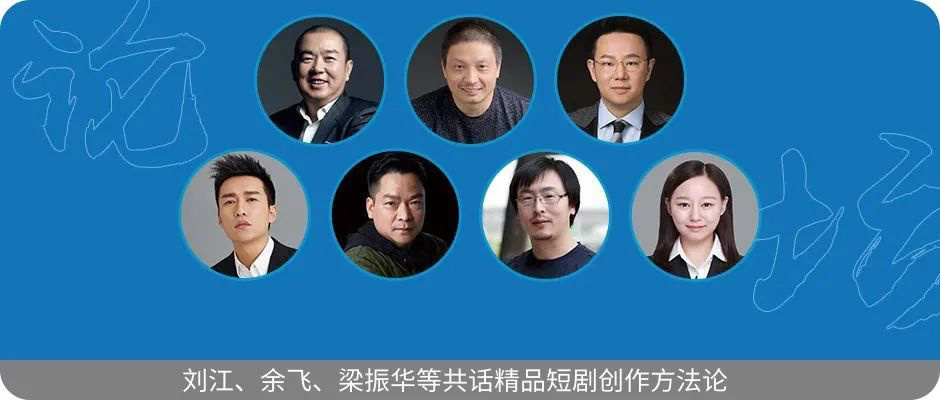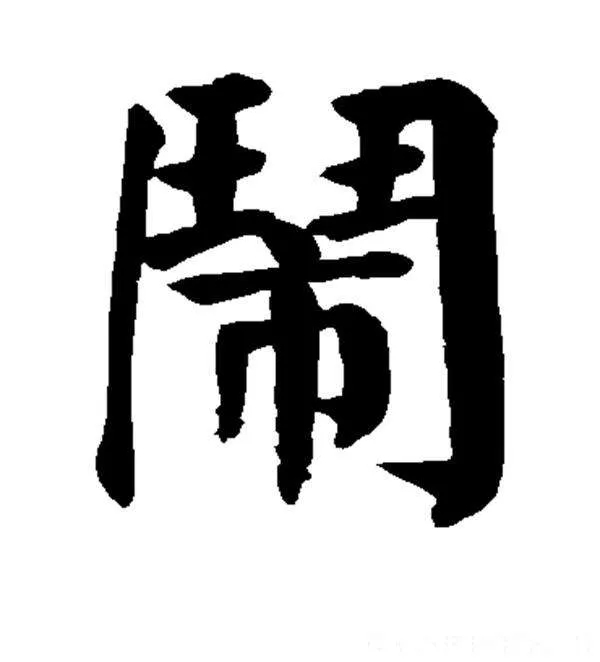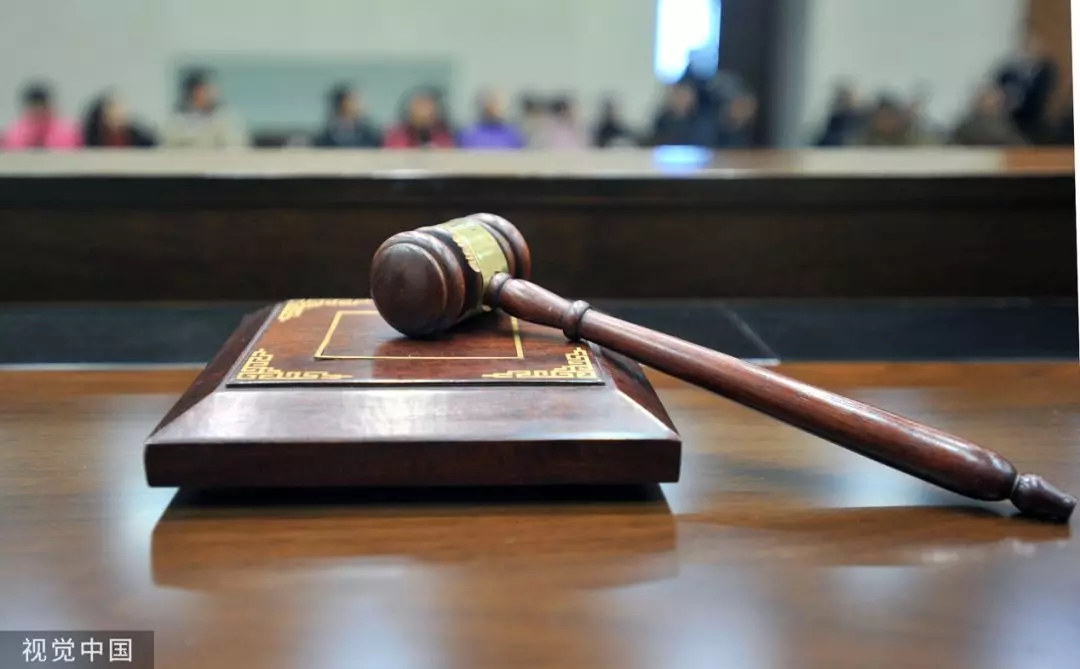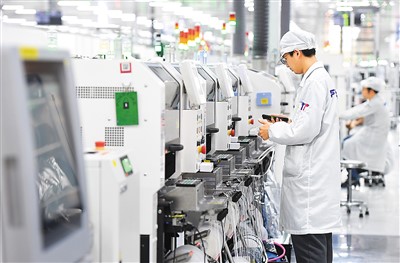
   On March 11th, in the zero-carbon factory in fengcheng city, Jiangxi Province-Faurecia Gele Electronics (Fengcheng) Co., Ltd., the staff rushed to produce automotive electronic products in the production workshop. Photo by Zhou Liang (people’s picture)
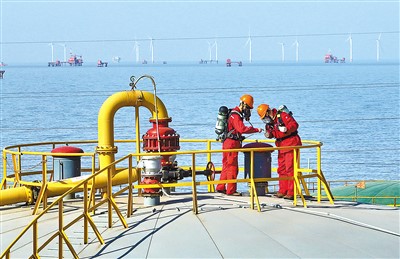
   On March 19th, employees at Haisi United Station of Shengli Oilfield in Dongying City, Shandong Province maintained the hydraulic safety valve and mechanical breathing valve at the top of the oil storage tank to avoid air pollution caused by methane and other gases. Shengli Oilfield has implemented the special rectification measures for ecological environment protection in the Yellow River basin with high standards, and established a "waste-free oilfield" and a green factory, thus realizing green and clean production in the whole process of oil exploitation, pipeline transportation and storage. Photo by Wang Guozhang (people’s picture)
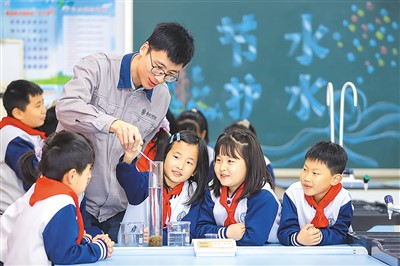
   On March 21st, in Hongde Primary School, Qingdao, Shandong Province, the narrator of the sewage treatment plant instructed the students to do experiments to cultivate children’s environmental awareness of saving water and protecting water in love the water. Zhang Yingshe (Xinhua News Agency)

   On March 15th, researchers conducted a liquid dye synthesis experiment at Zhejiang Modern Textile Technology Innovation Center (Jianhu Laboratory) in Keqiao District, Shaoxing City. In recent years, new green equipment and advanced technology have been introduced to promote the transformation and upgrading of textile printing and dyeing industry to low pollution, high technology and high added value. Xinhua News Agency reporter Weng Yushe
    Since 2022, the treatment of new pollutants has been written into the work report of our government for three consecutive years.
    With the deepening of the construction of beautiful China, China’s ecological environment protection work is developing from the treatment of sensory indicators such as "smog" and "black odor" to the treatment of new pollutants with long-term and hidden hazards.
    "Hard bones" that must be chewed.
    What are new pollutants?
    At present, the new pollutants widely concerned at home and abroad mainly include persistent organic pollutants, endocrine disruptors and antibiotics controlled by international conventions. The production and use of toxic and harmful chemicals are the main sources of new pollutants.
    The reason why new pollutants are called "new" is that on the one hand, they are relative to conventional pollutants such as sulfur dioxide, nitrogen oxides and PM2.5; On the other hand, there are many kinds of new pollutants, and the number of new pollutants that can be identified will continue to increase. At present, there are more than 20 categories of new pollutants of global concern, and each category contains dozens or hundreds of chemicals.
    Jiang Guibin, an academician of the China Academy of Sciences and dean of the School of Resources and Environment of the University of Chinese Academy of Sciences, believes that "unconscious contact, persistence, and imperceptible harm to human health and environmental systems constitute the common characteristics of new pollutants". With the deepening of understanding and the continuous development of environmental monitoring technology, the types and quantities of new pollutants will continue to change.
    Literature shows that high levels of environmental endocrine disruptors, antibiotics, microplastics and other new pollutants have been detected in air, water and soil in some areas of China. It is generally believed that new pollutants are gradually becoming a new difficulty that restricts the continuous and in-depth improvement of the environmental quality of the atmosphere, water and soil, and it is also a "hard bone" that ecological environmental protection must tackle after smog and black and smelly water bodies.
    The treatment of new pollutants is not easy.
    At present, China is the largest producer and user of chemical products in the world, and also the main supplier of chemical raw materials, with more than 50,000 kinds of chemical substances in production and use. These chemicals are consumed and used in many industries, and some chemicals are closely related to agricultural production, daily necessities, aerospace products and other important fields.
    Hu Jianxin, a professor at Peking University Institute of Environmental Science and Engineering, wrote that China’s annual production of short-chain chlorinated paraffins can reach millions of tons, and chlorpyrifos (note: a pesticide) involves agricultural production and food security. It is difficult to develop their substitutes, and there may be conflicts in availability, performance, cost, environment and safety, so it is difficult to achieve perfection, which brings great challenges to the treatment of new pollutants in the future.
    The treatment of new pollutants mainly involves the chemical industry and its downstream industrial chain. In recent years, China’s industrial technology and management level have greatly improved as a whole, but some enterprises are still at the low end of the industrial chain, and their technical level and management ability are uneven. In cities with rapid industrial development and urbanization, improper waste treatment will lead to organochlorine compounds residues, and industrial activities such as mining and smelting will lead to heavy metal emissions and residues. Frequent use of pesticides and fertilizers in some agricultural areas will cause the emission and residue of organophosphorus compounds.
    The weak foundation of detection is also a difficult problem to be solved urgently. Jiang Guibin found that the key point of new pollutant control is "newness" and the difficulty is "newness". Because it is "new", there are some problems, such as the monitoring method can’t keep up, the pollution base is unclear, the environmental process is unclear, the environmental hazards are not mastered, and the conventional prevention methods don’t work.
    The unclear toxic mechanism of new pollutants and the lack of efficient purification technology also hinder the treatment process of new pollutants. Jiang Guibin suggested that the establishment of "Science and Technology Special Project for New Pollutant Control" should be accelerated, interdisciplinary integration and high-tech application should be promoted, theoretical and technical systems for prevention and control of new pollutants and risk early warning should be developed, and technical support for new pollutant control should be strengthened.
    China is also facing the outstanding problem of coexistence of new pollutants and traditional pollutants.
    There is a clear deployment
    The CPC Central Committee and the State Council attached great importance to the treatment of new pollutants.
    In November 2021, the Opinions of the State Council City, the Central Committee of the Communist Party of China on Deepening the Fight against Pollution made clear arrangements for the treatment of new pollutants, requiring the formulation and implementation of an action plan for the treatment of new pollutants. Half a year later, in May 2022, the General Office of the State Council issued the Action Plan for New Pollutant Control (hereinafter referred to as the Action Plan). This plan puts forward requirements for the treatment of new pollutants from the aspects of overall requirements, action measures and safeguard measures.
    What are the goals for the treatment of new pollutants?
    The Action Plan requires that by 2025, China will complete the environmental risk screening of high-concern and high-yield chemicals and complete a number of environmental risk assessments of chemicals; Dynamically release the list of new pollutants under key control; Implement environmental risk control measures such as prohibition, restriction and discharge restriction on key new pollutants. The regulatory system and management mechanism for environmental risk management of toxic and harmful chemicals have been gradually established and improved, and the ability to control new pollutants has been significantly enhanced.
    How to deal with new pollutants?
    The Action Plan has made 18 specific arrangements from six aspects: improving laws and regulations, conducting investigation and monitoring, strictly controlling the source, strengthening process control, deepening terminal governance and strengthening capacity building. For example, in terms of improving laws and regulations and establishing a sound new pollutant control system, the Action Plan proposes to improve laws and regulations, establish a sound technical standard system, and establish and improve a new pollutant control management mechanism. It is required to establish an inter-departmental coordination mechanism for new pollutant control led by the ecological environment department, with the participation of development and reform, science and technology, industry and information technology, finance, housing and urban construction, agriculture and rural areas, commerce, health, customs, market supervision, drug supervision and other departments, so as to promote the new pollutant control work as a whole.
    In terms of investigation, monitoring and assessment of environmental risks of new pollutants, the Action Plan proposes specific measures such as establishing an environmental information investigation system for chemical substances, establishing an environmental investigation and monitoring system for new pollutants, establishing an environmental risk assessment system for chemical substances, and dynamically publishing a list of new pollutants under key control. It is explicitly required to formulate "one product, one policy" control measures for chemicals listed in the priority control chemicals list, antibiotics, microplastics and other key new pollutants, carry out technical feasibility and economic and social impact assessment of the control measures, identify the main environmental emission sources of the priority control chemicals, formulate and revise the emission standards of relevant industries in a timely manner, and dynamically update the list of toxic and harmful air pollutants, the list of toxic and harmful water pollutants and the list of toxic and harmful substances in the soil under key control.
    The "Action Plan" proposes to carry out pilot projects for the treatment of new pollutants. It is required to focus on petrochemical, coating, textile printing and dyeing, rubber, pesticide, medicine and other industries in the Yangtze River and Yellow River basins and around key drinking water sources, key estuaries, key bays, key mariculture areas, Beijing-Tianjin-Hebei, Yangtze River Delta and Pearl River Delta regions, and select a number of key enterprises and industrial parks to carry out pilot projects for the treatment of new pollutants, thus forming a number of demonstration technologies for the green substitution of toxic and harmful chemicals, the reduction of new pollutants and the treatment of new pollutants in sewage sludge, waste liquid and waste residue. Encourage qualified places to formulate incentive policies, promote enterprises to try first and reduce the generation and discharge of new pollutants.
    Overall, the Action Plan has designed a "three-step" governance work path. The first step is "screening", which screens out pollutants with great potential environmental risks and brings them into the scope of giving priority to environmental risk assessment; The second step is "evaluation", aiming at the screened chemical substances, taking the new pollutants with great risks to the environment and health as the key control objects; The third step is "control". For the key control objects determined in the first two steps, comprehensive control measures are implemented in the whole process.
    The Action Plan defines several key time nodes for the treatment of new pollutants.
    For example, in 2022, the first list of new pollutants under key control was released. During the "14 th Five-Year Plan" period, special treatment was carried out for a number of key new pollutants. By the end of 2025, a number of high-toxic and high-risk pesticide varieties will be re-evaluated. Local people’s governments at all levels should strengthen the organization and leadership over the control of new pollutants, and provincial people’s governments are the main bodies to organize the implementation of this action plan. Before the end of 2022, they should organize the formulation of the work plan for the control of new pollutants in their own regions, refine the objectives and tasks, clarify the division of labor among departments, and do a good job in implementation. All relevant departments in the State Council should strengthen the division of labor and cooperation, jointly do a good job in the treatment of new pollutants, and evaluate the implementation of this action plan in 2025.
    In the year when the Action Plan was published, the work report of the Chinese government proposed to strengthen the management of solid waste and new pollutants, and promote garbage classification, reduction and recycling. The following year, the government work report of our country proposed to strengthen the treatment of solid waste and new pollutants. In this year’s government work report, the relevant statement is to strengthen the treatment of solid waste, new pollutants and plastic pollution.
    At the beginning of this year, Xinhua News Agency published "Opinions of the Central Committee of the Communist Party of China and the State Council on Promoting the Construction of Beautiful China in an All-round Way", which called for strengthening the control of solid waste and new pollutants. Accelerate the construction of a "waste-free city", continue to promote the action of controlling new pollutants, and promote the realization of "waste-free" and environmental health in urban and rural areas. Strengthen the comprehensive management of solid waste, limit excessive packaging of commodities, and control plastic pollution through the whole chain. We will deepen the comprehensive ban on the entry of "foreign garbage" and strictly guard against the smuggling and disguised import of various forms of solid waste. Strengthen the supervision, utilization and disposal capacity of hazardous wastes, and strengthen the pollution control of tailings ponds with emphasis on the Yangtze River Economic Belt and the Yellow River Basin. Formulate regulations on environmental risk management of toxic and harmful chemicals. By 2027, the proportion of "waste-free cities" will reach 60%, and the intensity of solid waste production will drop significantly; By 2035, the construction of a "waste-free city" will achieve full coverage, and the eastern provinces will take the lead in building a "waste-free city" in the whole region, and the environmental risks of new pollutants will be effectively controlled.
    Also this year, many provinces in China mentioned the treatment of "new pollutants" in their government work reports. It is the common goal of many places to promote the construction of a "waste-free city" and strengthen the treatment of new pollutants.
    Strengthen collaborative governance
    The characteristics of new pollutants determine that coordinated treatment is needed.
    The environmental risk of new pollutants is an environmental problem faced by all countries in the world.
    DDT mentioned in Silent Spring is one of the chemicals with typical new pollutant characteristics. Its harm spans half a century and spreads to every corner of the world, and it is impossible to control it by one country alone. Professor Hu Jianxin pointed out: "The treatment of some new pollutants requires global action. In addition to being persistent, bioaccumulative, carcinogenic and teratogenic, some new pollutants also have the potential of long-distance migration, which can migrate across international boundaries with air, water or migratory species and be deposited in areas far away from their discharge points, causing worldwide environmental pollution problems. "
    In terms of new pollutant treatment, China has an inter-departmental coordination mechanism.
    Report to the 20th CPC National Congress of the Communist Party of China clearly put forward the important task of "developing new pollution control". Shortly after the closing of the 20th National Congress, on November 4th, 2022, the first meeting of the Inter-Ministerial Coordination Group for New Pollutant Control was held in Beijing. The leader of the coordination group is Huang Runqiu, Minister of Ecology and Environment. In addition to the Ministry of Ecology and Environment, the members of the Inter-Ministerial Coordination Group include the National Development and Reform Commission, the Ministry of Science and Technology, the Ministry of Finance, the Ministry of Housing and Urban-Rural Development, the Ministry of Agriculture and Rural Affairs, the Ministry of Commerce, the Health and Wellness Commission, the General Administration of Customs, China Banking and Insurance Regulatory Commission and other departments.
    On February 2, 2024, the second meeting of the group was held. The meeting pointed out that it is necessary to give full play to the role of the new pollutant control promotion mechanism, strengthen cross-departmental joint actions, increase guidance and assistance to local counterpart departments and enterprises, strengthen supervision and law enforcement, and track down the effectiveness, and systematically promote the key tasks of new pollutant control to make breakthroughs. In addition, it is mentioned that it is necessary to speed up the legislation on the control of new pollutants, promote the implementation of major scientific and technological special projects, plan and lay out a number of major projects, strengthen fiscal, taxation, finance, price and other policy support, and lay a good combination of the rule of law, science and technology and policy.
    In addition to inter-ministerial coordination, there is also inter-provincial cooperation.
    For example, Sichuan and Chongqing have jointly promoted the treatment of new pollutants. On March 14th this year, the first joint meeting of new pollutant control in Sichuan and Chongqing was held in Chongqing. The meeting reported the development of new pollutant control work in 2023 and the work plan for 2024 in the two places. The meeting proposed to carry out joint investigation and monitoring of new pollutants in Sichuan and Chongqing, focus on finding out the current situation of new pollutants such as antibiotics and perfluorochemicals, jointly promote the risk assessment of chemical substances in Chengdu and Chongqing, and provide a basis for issuing a supplementary list of key new pollutants in Chengdu and Chongqing.
    Some provinces are carrying out pilot work.
    For example, Jiangsu is a pilot province for environmental monitoring of new pollutants. The province monitors pollution points in water sources and air in two pilot industrial development zones. Hubei, Hunan, Jiangxi and other provinces carried out pilot investigation, monitoring and evaluation of new pollutants in key industries. Anhui province has focused on the whole process monitoring and environmental information investigation, conducted law enforcement inspection on the production, processing and use of new chemical substances, and carried out pilot investigations on basic environmental information of chemical substances. Inner Mongolia Autonomous Region has launched a pilot project of investigation and risk assessment of new pollutants in the Yellow River Basin and "one lake and two seas" in the whole region, and carried out non-targeted screening and quantitative monitoring of new pollutants. Shaanxi Province launched a pilot project of compensation for ecological and environmental damage involving new pollutants, which provided guarantee for promoting clean production and green manufacturing.
    At present, various localities have carried out pilot projects in key industries, key fields, key river basins, process monitoring and result guarantee, forming a multi-level and multi-dimensional pilot network. These pilot projects are part of the work of controlling new pollutants. Some places also focus on improving legal protection, issuing regulations on the prevention and control of soil pollution, and clearly implementing and strengthening the control of new pollutants such as persistent organic pollutants.
    According to the plan, in 2025, Jiangsu will initially establish a new pollutant environmental investigation and monitoring system, Shandong will initially establish a new pollutant control system, and Liaoning’s new pollutant control capacity will be significantly enhanced …
    Time is tight and the task is heavy. (Chen Zhenkai, Li Xinran)
